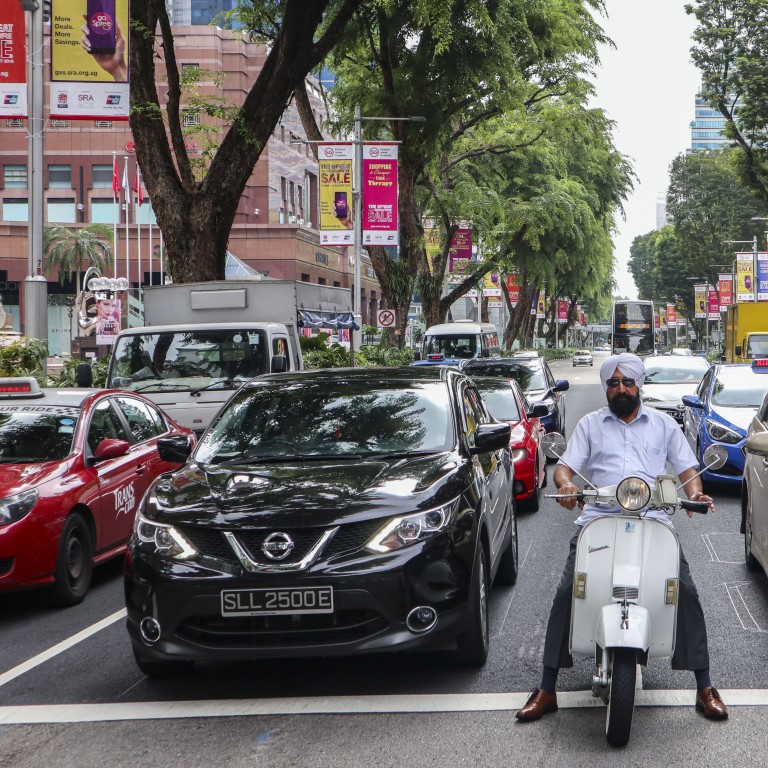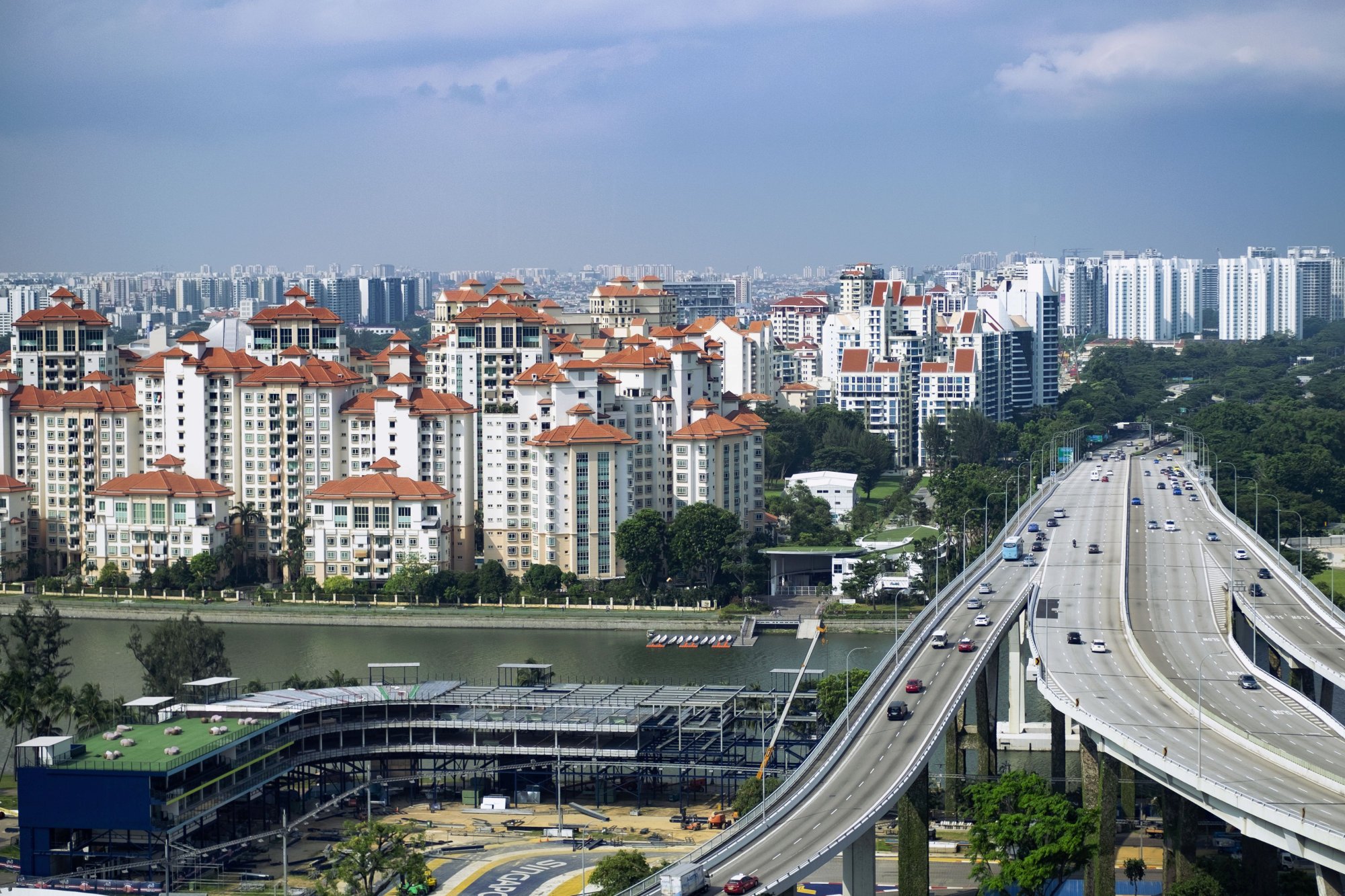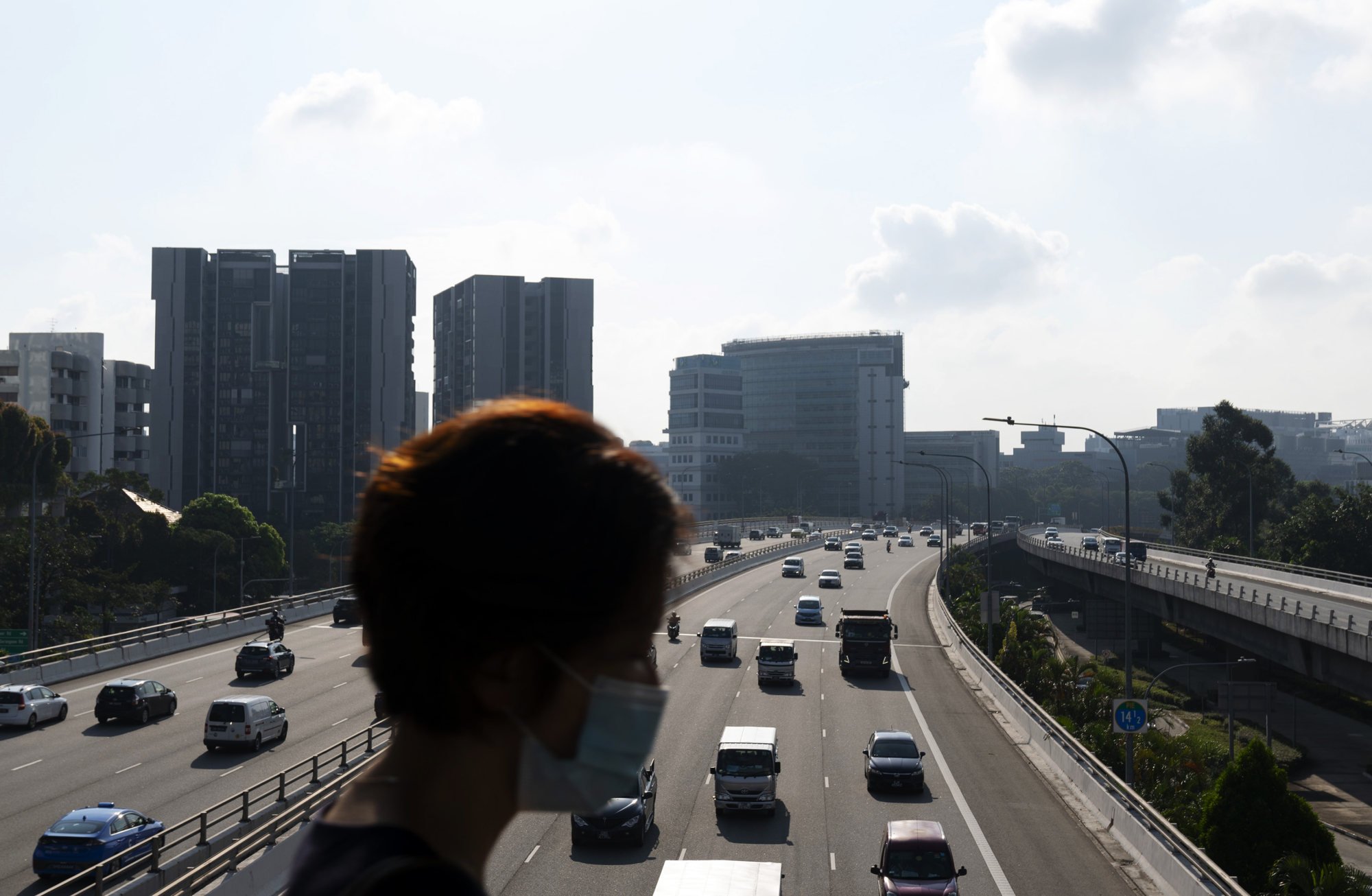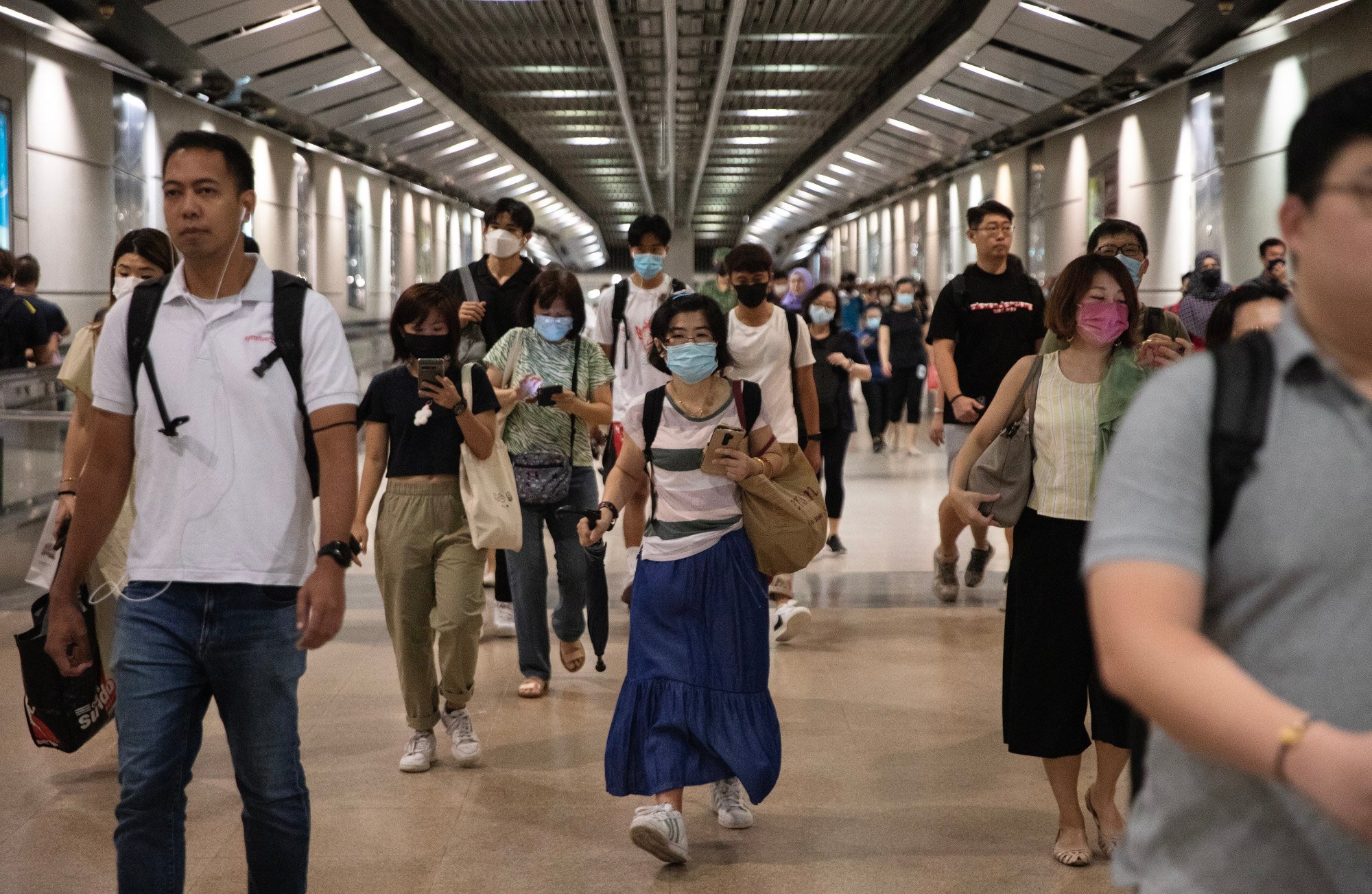
Singapore’s middle class reels over record COE prices: ‘US$150,000 for a Toyota Corolla?’
- The price of a permit to own a car, known as a certificate of entitlement (COE), has ballooned to US$75,000 in the land-scarce city state, before even factoring in the car’s cost
- It’s put the dream of ownership beyond the reach of many in the middle class, who are left to contend with public transport – or get a motorbike
But Lee’s ownership dreams were punctured when it surpassed S$100,000 (US$75,000) for a small car, before even factoring in the cost of buying one.
“I’ve been on the lookout for a suitable car, however inflation is getting higher and the cost of living – especially the prices of cars – is getting higher too,” Lee said.

In Singapore, every motorist or dealer who wants to own a vehicle must bid for a certificate of entitlement (COE), a system introduced in 1990 to limit the number of vehicles on the road. Each COE is classified based on the vehicle type and is valid for 10 years.
The transport authority controls the number of COEs available, announcing the quota every quarter. Permits now cost more than three times what they did in March 2020, when around S$31,000 was enough to secure a small-car COE. At the most recent bidding in May, a COE for a large car set drivers back almost S$120,000.
Though many have come to accept that exorbitant prices for a car are a norm in a city state where urban planners pride themselves on keeping traffic manageable, Singaporeans who spoke to This Week in Asia said that surging COE prices had made car ownership “impossible for the middle class”.
“The car I owned last time was a Mercedes, but when I went to look around for a new car recently, I realised that with the same budget I could only afford a Toyota Corolla” model released eight years ago, said Dylan Tan, a hotel sales director.
The upper-price limit for a 2023 edition of the five-seater sedan stunned Tan. “Who would spend S$200,000 (US$150,000) on a Toyota Corolla?” he asked.

‘Car-lite’ society
Last year, the city state was named the most expensive place in the world to own a car by Swiss private bank Julius Baer, in a study that compared it to 24 other cities globally.
The Singapore government has pushed for a “car-lite” society, encouraging the use of public transport and bicycles, among other measures.
In parliament this week, a robust debate on soaring COE prices ensued, with a flurry of questions and suggestions raised by lawmakers on how to improve the existing bidding system for certificates.
Speaking in parliament on Monday, Transport Minister S Iswaran said the zero-growth policy on cars – and increasing household incomes – mean premiums are likely to continue going up.
Fundamentally, the COE prices reflect demand for a limited supply of COEs
“Fundamentally, the COE prices reflect demand for a limited supply of COEs,” he said. “This is further accentuated, or exacerbated by the fact that we are now at the trough in the 10-year cycle of COE supply. Demand in all categories has remained resilient, especially as the economy recovers post-Covid.”
Addressing questions on the impact of foreign buyers, he said the proportion of COEs secured by foreigners “remains low”, with fewer than 3 per cent of permits allocated to non-Singaporeans from July 2020 to December last year.
As cost pressures continue to rev up, some disgruntled Singaporeans have started pointing fingers at the wealthy as the cause for rising car premiums, adding fuel to the debate on inequality. Some have even called for a cap on the number of cars each household can own, or a “one-car-per-household policy”.
“COE prices are divisive, and the basic problem is that – like property, admissions to elite schools and universities, and jobs – there is always concern about how to allocate a very scarce resource fairly and efficiently,” said Walter Theseira, a transport economist.
“It’s hard to avoid the concern that the allocation process worsens inequalities,” he said, citing the example of buying expensive property near an elite school to improve the odds of a child’s admission.
But other allocation methods that take into account buyers’ circumstances – such as a system that favours families with young children – may be less efficient, Theseira said.
“It seems unlikely that we can go to these measures for cars,” he said, citing the example of public housing flats, where many restrictions have been put in place to prevent people from “gaming” the system.

COE prices to stay put
The authorities have not been resting on their laurels, with adjustments made to the system over the past year to reduce supply volatility. They have tried to improve their “operational calculations” to prevent COE premiums being hit by “knee-jerk reactions”, transport analyst Terence Fan said.
“For example, if a car dealer is unable to bid for any COE in the previous round, the dealer may instinctively want to set a very high price for the next option. I think the [Land Transport Authority, which sets the rules on permits] has been trying to smooth out the operational fluctuations,” he said.
Still, experts say COE premiums are unlikely to dip below S$100,000 again any time soon, given the growth in demand that’s driven by a growing population, the number of ride-hailing and logistics firms and increased numbers of tourists.
Johnny Yeo, vice-president of the Singapore Vehicle Traders Association with more than 370 members, said prices were unlikely to change much in the long run, despite recent moves to reduce supply volatility through the redistribution of 6,000 non-extendable five-year COEs and the bringing forward of deregistrations.
If cars continue to get more expensive, I’ll probably just go for a motorbike
“At the end of the day, it is still a demand-and-supply issue. How we change some policies will mean a market reshuffle for a few months before it goes back to normal … The COE will stay put at least at around S$100,000,” Yeo said.
Some car dealerships may see their businesses take hit as the high cost of a new car and COE permit for it is likely to turn more buyers away, said Angela Poh, chief revenue officer at Motorist Singapore, an online automotive platform for buying and selling new and used vehicles.
But unlike housing, which many Singaporeans see as a bread-and-butter issue, car prices are unlikely to spark much of an outcry.
Singapore overtakes Hong Kong in terms of millionaires: report
Car ownership is not seen as a “necessity” for many given the city state’s robust public transport system that allows residents to move about hassle-free, said Felix Tan, a political analyst and associate lecturer at Singapore’s Nanyang Technological University.
“Car ownership is not something that one would think of investing in, in the long term,” he said, suggesting that home ownership was most people’s main economic motivator.
For those in need of a personal means of transport, however, there are cheaper alternatives. Zack Khoo, a 38-year-old part-time student, said he was considering a motorcycle.
“If cars continue to get more expensive, I’ll probably just go for a motorbike,” he said. “But in the event that I get married and have a family, I would want to get a car instead.”

